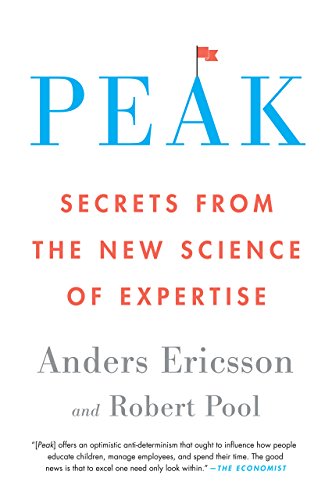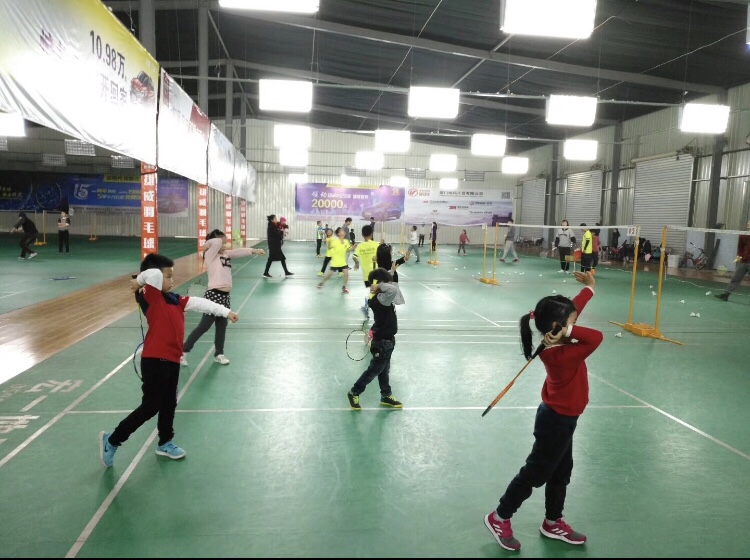You may have heard of the 10,000 hour theory that Malcolm Gladwell popularized in his book Outliers. It is the idea that anyone can become a master in any discipline as long as they put in 10,000 hours.
Gladwell got that figure from research done by Anders Ericsson, the author of Peak: Secrets of the New Science of Expertise. Anders disagrees with Gladwell’s simple reduction of his ideas. While it is true that you need a staggering amount of work to become a master, there is no set amount of time or hours. You can’t just swing a golf club for 10,000 hours and expect to be a master.
What you need, says Anders, is “deliberate practice.” What’s that? It’s a specific way to practice something to improve at it. Such as?
Well, it’s not just focusing really hard or having a good teacher. Instead, to have pure deliberate practice, as Anders defines it, you first need to join a field that is established with experts and techniques. Of course this could be most things, like ballet, chess, math, memorizing numbers and badminton. For the sake of this article I’m only gonna talk about badminton from here on out, but he says this technique works in every field.

You need a coach who analyzes you personally, and gives you immediate feedback, focusing on the things you are not doing right. Some coaches, especially in large groups, will give everyone some training, say, hit clears back and forth for 10 minutes. The coach might say something slight, like “arm up” or “racket leg forward,” but ultimately they just walk around the courts making sure everyone is hitting and not really focusing on one person. This is what my training at Boston Badminton was like.
But that’s not deliberate practice. Deliberate practice is analyzing every shot, every hit, getting immediate feedback and told how to fix it. That’s exactly what my coach does. Every training session, and every game, he focuses on me and my problems and forces me to improve them. My coach has never heard of the phrase “deliberate practice,” but he nails it (Which is one of the reason I think he is such a good coach.) He doesn’t let one mistake go unchallenged.
Another thing Anders says a coach is important for is making “mental representations.” He says a mental representations is “in essence… are preexisting patterns of information – facts, images, rules, relationships, and so on – that are held in long-term memory and that can be used to respond quickly and effectively in certain types of situations.”
Like, in badminton you know what kind of shot can lead to what kind of response. You can’t smash back a smash for example, so when you smash against someone you get ready for the two most likely shots (a return at the net or at the back of the court). Beginners don’t know that though. That’s why coaches help them train on smash, net shot, smash, net shot etc. They are setting up the athlete to understand how shots work in a game. They need mental representations of how to play the game and what a shuttle is capable of. As their mental representations get stronger, their understanding (and control) of the game gets better.
The book also talks about “natural born talent” or how, specifically, there is no such thing. There is a genetic component, such as tall people might be pushed towards basketball, but there is nothing in any research to suggest some people are just “born good.” He talks about Beethoven, who was a child prodigy and everyone uses as an example of a natural born musician. But actually if you look close, Beethoven was trained by his father who also trained his older sister. His father had a teaching technique for children which he honed on the older child and started Beethoven on young. By the time he started performing and writing music he had actually been deliberately practicing for years. In all his research Anders has never seen any evidence of a natural born talent.
What he did see was some people pushed towards something. Like Beethoven and music or a tall kid and basketball. The tall kid would be favored by his teachers, taught and encouraged more than a short one. That’s a loop of positive feedback which encourages the tall kids. They want more of that so they keep playing, they get the better teaching, or the attention of the coach and so on and so forth until they are college basketball stars. So it’s not the fact they they are born tall. It’s more that being born tall got them more attention and training which improved their skills over the shorter kids.
I really like this because, well, I’m a middle-aged dumpy lady trying to make it in the competitive world. I have a huge disadvantage starting late, which research backs up. It seems like no matter what an adult cannot catch up to someone who started as a young child. The body grows and develops differently if you focus and work really hard on one thing at a young age. But, regardless there is good news for older people. We might need more rest, and it might take us more time, but Anders says there is no reason that deliberate practice cannot help improve us to a point of excellence in any field. (He cites several studies of older athletes and others as examples.)

Lucky kids. But according to science I am not out of the game yet!
Another point that really stuck out to me was how experience doesn’t mean someone is better. We all think that someone who has experience is automatically better because they have been doing it so long. Like a doctor who has twenty years of experience will obviously be the better doctor.
But Anders says research says no. That actually often the older doctors are worse than the newer ones. If you compare, say, radiologists, that actually the newer doctors with less experience have a higher success rate in correct diagnoses.
That’s because people tend to get into a groove. A doctor might go to lectures, but lectures aren’t deliberate practice. (You are not an active participant, but rather just sit and listen.) Newer doctors have had hands on training with experts who have corrected and taught them. An important part of deliberate practice is getting immediate feedback on your own mistakes and problems. Many people who are experienced no longer get that as no one would dare question them or correct them. Which shows that in badminton just because someone has been playing for 20 years doesn’t mean they will be better than me. If they’ve just played for fun then I have more of a chance because I do deliberate practice.
This book gave me a lot of encouragement. While I feel that if I work hard I can achieve my goals because I’m optmistic, this has science behind it. Overconfidence is an extremely American trait and is often just BS. But he gives the technique on how to continue to improve (even if you’ve hit a plateau) and exact steps to take and proves that it is possible. Age and past isn’t a factor and anyone who focuses on deliberate practice can do it. Luckily I’m in a really good position with my coach who seems to do the most effective technique and I am following many of the deliberate practice techniques already. I just need to keep going with it and not get too comfortable as I improve.
I would definitely recommend this book for all badminton players as I think anyone, at any level, can get a lot out of it.







